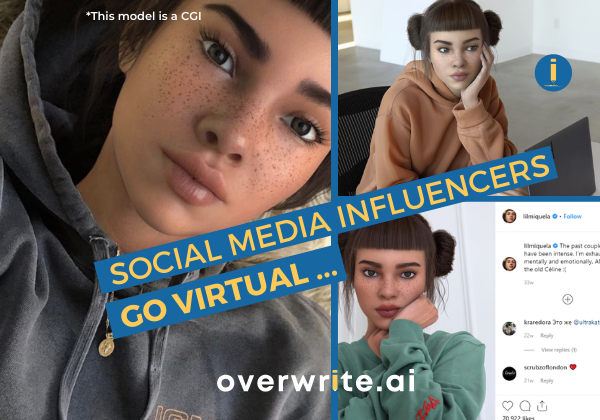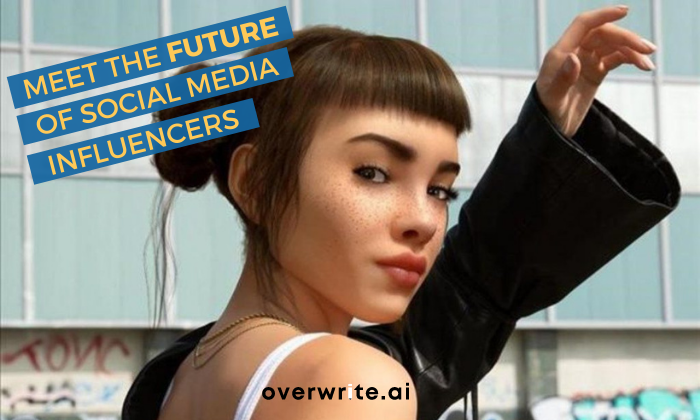
Love them or hate them, social media influencers are very much part of today’s mainstream marketing mix. When Facebook suffered their hours long outage last week, it was widely reported to have cost the social network upwards of $100 million dollars in lost revenue. The service disruption impacted the company’s stock price, which fell by 4.9 percent last Monday – that’s a whopping $47.3 billion in lost market cap.
The pain didn’t end at Mark Zuckerberg. As a result of what has been named the “Great Social Outage of 2021”, the business of thousands of others haemorrhaged at the hands of Mark’s monumental technical “glitch”. Social media influencers worldwide were rendered helpless for the entire time that FB’s universe was offline, their hands literally tied at the mercy of the technical boffins at Facebook HQ.
So how do influencers, brands and marketers future proof their sales strategy? And what’s next for Influencer Marketing?
Many Eggs. One Basket
The problem this case highlights, was that Facebook owns Instagram and WhatsApp, meaning they all went down together. For those influencers who depend on these Facebook-owned platforms to reach their audience, it reportedly cost them and the businesses that hire them, millions of dollars’ worth of advertising revenue.
This isn’t the first time it’s happened. Savvy influencers that have their streams flowing through other independent channels such as TikTok or Twitter, would have been able to weather the storm. But most people are lazy.
It’s not rocket science to know that diversification mitigates risk. It’s a basic rule of life. One needs to have their fingers in more than one pie, diversifying revenue streams across multiple sources. Influencers should invest in their own website, blog or Youtube channel in order to gain more autonomy over their virtual shop windows.
With brands relying so heavily on digital communication, many of the risks inherent in Influencer Marketing are often forgotten.
When a brand assigns someone to represent it, risks are forever lurking in the shadows. For centuries, institutions have had to cut ties with partners if they cause controversy that falls outside of institutional values. Think of the Papal excommunication of Henry VIIIth of England. More recently, despite the popularity of Netflix’s House of Cards tv show, they didn’t hesitate to dump Kevin Spacey in the wake of the #MeToo movement, because his actions no longer represented the values of their brand.
It’s critical to future-proof marketing budgets and strategy, so that influencers and the brands they work for are less vulnerable to technical glitches or value clashes.
The Virtual Influencer
As a tech company built around AI, we are native to the intelligent automation of human processes. We see first-hand, just how intertwined Artificial Intelligence has become with the success and competitive advantage of companies in every industry. In the case of OVERWRITE.ai, our bleeding-edge tech delivers operational efficiency to real estate agencies. By bridging the gap between the digital processes and physical real estate transactions, we help create an innovative way to connect consumers with agents’ real estate listings.
Because we’re an online SAAS business, we can’t help but get excited when we hear that a new tech innovation is taking place. Born from the rise of the Brand Influencers, there’s now a new kid on the influencer block. The “Digital Ambassador” or “Virtual Influencer”. These are not your everyday social media stars. They are brand influencers with a difference; they’re entirely digital.
Think of a digital human. Hyper-realistic avatars with personalities, facial expressions, and voice inflections that create a lifelike bridge between automation and human interaction. Complete with their own personality code, conversational design systems and complex personalisation features, we’re talking highly bespoke, visually anthropomorphic voicebots.
Digital Brand Ambassadors?
As their capabilities continue to advance, more companies are using virtual influencers to enhance marketing campaigns and streamline business operations. Somewhat ironically, in places such as Japan, digital humans can provide real people with the human connection they have been missing, with unlimited, 24/7 accessibility.

Influencing the Future
Although the media often criticises the industry, influencer marketing has matured to become an established marketing medium, supported by companies, apps and platforms. Who doesn’t love to hate on influencers? And yet influencer marketing is showing no signs of slowing down. According to one online publication, Influencer marketing is expected to be worth US$13.8 Billion this year.

We are experiencing our fourth industrial revolution. A digital age where virtually anything is possible. Who knows where this new breed of “digital brand ambassador” will take us.
Ayman Alashkar
One thing’s for sure. Our reliance on technology is greater than ever. The fact that a technical glitch brought the world’s biggest media company to a standstill, leaving a significant chunk of the global population literally twiddling their thumbs, is proof of the need for social media influencers to evolve.
OVERWRITE.ai is a world first, user-friendly marketing solution that allows estate agents to instantly autowrite unique, search-optimised property descriptions, taking the boring out of the daily grind.
For informative and light-hearted news and views on the world of real estate, follow OVERWRITE.ai on Instagram and LinkedIn, and keep up-to-date with our weekly NewsBites blog.